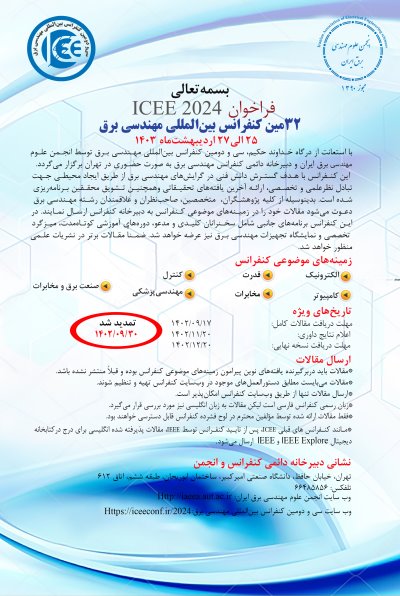0% Complete

نویسندگان :
کلمات کلیدی :
چکیده :
لیست مقالات بایگانی شده
Nazanin Parhizgar - Ali Jamshidi - Peyman Setoodeh
رضا نرئی - یاسر کریمی - محمدهادی زارع
Melika Khajeh - Azam Bastanfard - Dariush Amirkhani
Hassan Hamidi - Ali Asghar Razi Kazemi
Hossein Mohammadi Firozjae - Javad Zeraatkar Moghaddam - Mehrdad Ardebilipour
Farzad Rastegar - Zohreh Paydar
امین مزروعی آبکنار - مجتبی مداح علی - مرضیه نصیریان
Payam Loloei - S.hossein Hosseinian
Mahdi Talebi - Masoud Sabaei
حجت قیمت گر - پریسا قربانی



